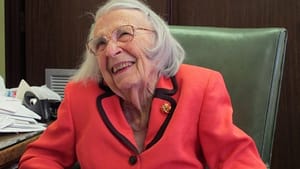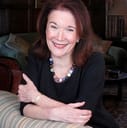Stay in the Loop
BSR publishes on a weekly schedule, with an email newsletter every Wednesday and Thursday morning. There’s no paywall, and subscribing is always free.
Found: The real villain of the Mockingbird mystery
Harper Lee’s sister: Protector or warden?

Like most readers, I was spellbound and uplifted by Harper Lee’s magnificent 1960 novel, To Kill A Mockingbird. And like most readers I was mystified by this summer’s appearance of an earlier work, Go Set A Watchman, which Harper Lee has described as the “parent” of Mockingbird. Why this sudden publication from a reclusive woman who had long insisted she would never write another book? And why now?
The existing commentary has suggested that Harper Lee’s devoted older sister (and attorney), Alice Lee, steadfastly protected Harper from public intrusion into her very private life and that Alice’s protection ended with her death last November at age 103. At that point, according to this theory, Lee’s current attorney, Tonja Carter, and her publisher, HarperCollins, greedily manipulated a sight- and hearing-impaired 89-year-old woman who has suffered two strokes in order to bring an unfinished manuscript to market against the author’s will, in the process tarnishing a masterpiece (not to mention Mockingbird’s saintly hero, Atticus Finch). But further examination from my perspective as a clinical social worker and family therapist suggests a very different conclusion.
Family pressures
In many respects, a psychotherapist works much like a detective. Clients consult us because they feel muddled and confused about their personal and professional directions. One of the challenges in a client-therapist relationship is to identify the clues our clients offer about the events and relationships that have left them feeling stifled, even imprisoned. This perception goes hand in hand with another insight: Sugarcoating reality through the belief in fairy tales may be important to children for many reasons, but continuing to cling to illusion is blinding to adults. Once we leave childhood, we have a much better chance to find joy and fulfillment by confronting reality, regardless how slippery its slopes.
But this process can be quite unsettling: Those we previously perceived as villains can in time be understood far differently, as can those we viewed as our protectors.
As I read the events that led to the publication of both Mockingbird and Watchman, the same kind of clues that I see daily in my office began to leap out before me. The more I read, the more I began to see Harper Lee as a woman thrust into a depleting life that muzzled her — one from which she could find no exit. I began to believe that as a young ambitious writer, Harper Lee paid an extraordinary price for her enormous success. I began to see her as a writer forced by the pressures of family and community to loyally protect Mockingbird — a work she knew was largely fantasy yet felt compelled to endorse without reservation. She couldn’t cast off her youthful fantasy without undermining the reputations of all those she cared about, including a book that was revered worldwide. This containment made it impossible for Harper Lee to develop adult emotional and sexual direction and fulfillment. As a result, rather than evolve into mature adulthood, Harper Lee sank into an isolation that her sister strongly supported.
Viewed in this light, the recent publication of Watchman allowed this frail 89-year-old woman to experience the freedom and relief that had eluded her throughout her adult life. I have come to believe that Tonja Carter, the alleged villain of this saga, has in fact devoted herself to protecting Harper Lee until the time could come when she could finally help to reveal Harper Lee’s unspoken truths.
‘Atticus in a skirt’
Alice Lee was by all accounts an extraordinarily determined woman (she practiced law until she was 100). In the 1940s and ’50s, during the period that Harper Lee left her family home in Monroeville, Alabama for a literary career in New York, Alice joined the law practice of their father, Amasa Coleman Lee. The fictitious Atticus Finch is largely regarded as a composite figure of Amasa and Alice, who vehemently guarded the entire Mockingbird legacy. Harper Lee herself reportedly described her sister Alice as "Atticus in a skirt," who practiced law “sweetly, quietly, and lethally.” (Click here.)
The Alabama historian Wayne Flynt described Alice as "a pioneer long before her sister, Nelle Harper, spread her wings in New York." Keith Norman, executive director of the Alabama State Bar, called Alice “legendary in [this] part of the state." In short, regardless of the cost to her sister, Alice Lee had a vested interest in protecting the entire Mockingbird legacy. (Click here.)
Other reports confirm that Alice was a fierce gatekeeper to her younger sister, always citing as her pretext the importance of Harper's privacy. However, a review of events and statements in the light of Watchman strongly suggests another motivation for not granting access: Alice preferred Mockingbird’s portrayal of Atticus and their Alabama hometown and felt threatened by the darker portrait provided in Watchman.
Agents and editors
Now consider the era when Mockingbird was published — a time of creative relationships between literary agents and the extraordinarily talented editors who worked in major publishing houses (before corporate takeovers relegated the majority of book editors to acquisition negotiators). But it was also a time when the relationship between editor and writer could be exceedingly controlling.
In 1957, when Lee was 31, her agent, Maurice Crain, submitted her initial manuscript, Go Set a Watchman, to the talented editor Tay Hohoff at J.B. Lippincott Company. (Click here.) Hohoff urged her to rewrite Watchman, setting it in the Depression-era past rather than the present, and seen through the eyes of young Scout. The rest, of course, is history.
In a discussion about these events with my former editor at Scribner’s, Laurie Graham, Laurie said: “Like you, I believe that Watchman was thought not to be publishable at the time it was written because the country wasn’t ready for some of its content.” She continued, “So in becoming Mockingbird, it became a sort of fairy tale. I am not sure that, as an editor, I would have felt comfortable removing the nuances of Atticus Finch's character. But it is clear that Tay Hohoff's guidance resulted in a finished and refined piece of writing."
‘I did what I was told’
Maurice Crain, Harper Lee's original literary agent, is described as a Southerner and "champion for writers in the 1960s whose small-town settings were falling out of fashion." Crain described the transition from Watchman to Mockingbird in personal correspondence reported this July in the Atlantic: "Most good books are ones that have been a long time maturing, with a lot of cutting and fitting and replanning done along the way. Mockingbird, for instance, was the most replanned and rewritten book I ever had a hand in…it turned out finally that all the labor on it was well justified." (Click here.)
But was it justified to Harper Lee? "I was a first-time writer,” she once said about that period, "so I did what I was told.” (Click here.)
The book Harper Lee first submitted revealed Atticus as the complex man that he most likely was. Yes, Atticus had defended two black men who were hanged for murdering a white storekeeper. But he was also a man of his time, and Harper Lee’s Watchman exposes this time as one of bigotry and racism, not only in her community but also in her home — a reality that her older sister would prefer to have suppressed.
Sisters in conflict
In 2006, soon after graduating from the University of Alabama Law School, Tonja Carter began working closely with Alice in the century-old law firm, Barnett, Bugg, Lee & Carter. (Click here.) Carter was thus in a unique position to learn about the lives of the two sisters and observe at close range Alice’s fears and the suppression of her sister.
Subsequent events indicate a dramatic shift in the relationship between Alice Lee and Tonja Carter. They also suggest conflict between the sisters, who shared their childhood home in Monroeville full-time after health problems forced Harper Lee to leave her part-time New York residence. By 2014, the sisters were living apart in different assisted living facilities. A memoir published that year by a temporary next-door neighbor — The Mockingbird Next Door, by journalist Marja Mills — inadvertently exposed their discord. The Mills memoir was highly protective of the Atticus/Mockingbird legacy. After the memoir appeared, however, Harper Lee insisted she had not authorized it. (Click here.)
This prompted Alice to write to Mills, "Poor Nelle Harper can't see and can't hear and will sign anything put before her by anyone in whom she has confidence.” (Click here.)
After Alice died
"You ever wonder why I never wrote anything else?" Harper Lee is reported to have once asked her friend and confidant, the Reverend Thomas Lane Butts of the Monroeville Methodist Church, as they shared a bottle of Scotch. Reverend Butts suggested that perhaps she "didn't want to compete" with herself. To this notion, Harper Lee responded, "Bull." She then offered two reasons: First, she "wouldn't go through the pressure and publicity I went through with To Kill A Mockingbird for any amount of money,” and second, “I have said what I wanted to say and will not say it again." (Click here and here.)
Yet timing is everything: The death of Alice, the support and savvy of Tonja Carter, and the ecstatic involvement of Rupert Murdoch's media empire (which owns HarperCollins) have catapulted Watchman to the top of the New York Times bestseller list, with sales of more than 1.1 million copies. I believe that Lee's intended first book, suffering all the limitations of a young writer's first attempt, has at last revealed what she wanted to “say and not say again.” And I can’t help but wonder: Given the same skillful editing that Mockingbird received, what would have happened if Harper Lee had been allowed to write the book she yearned to write in 1957?
Frail and infirm though she may be, I see Harper Lee as finally set joyfully free. Some day, perhaps, another gifted writer will examine the pieces of her life and assemble them into the fascinating psychological drama they deserve.
To read a related essay by Dan Rottenberg, click here.
What, When, Where
Go Set a Watchman: A Novel by Harper Lee. Harper, 2015. Available at Amazon.
Sign up for our newsletter
All of the week's new articles, all in one place. Sign up for the free weekly BSR newsletters, and don't miss a conversation.

 SaraKay Smullens
SaraKay Smullens